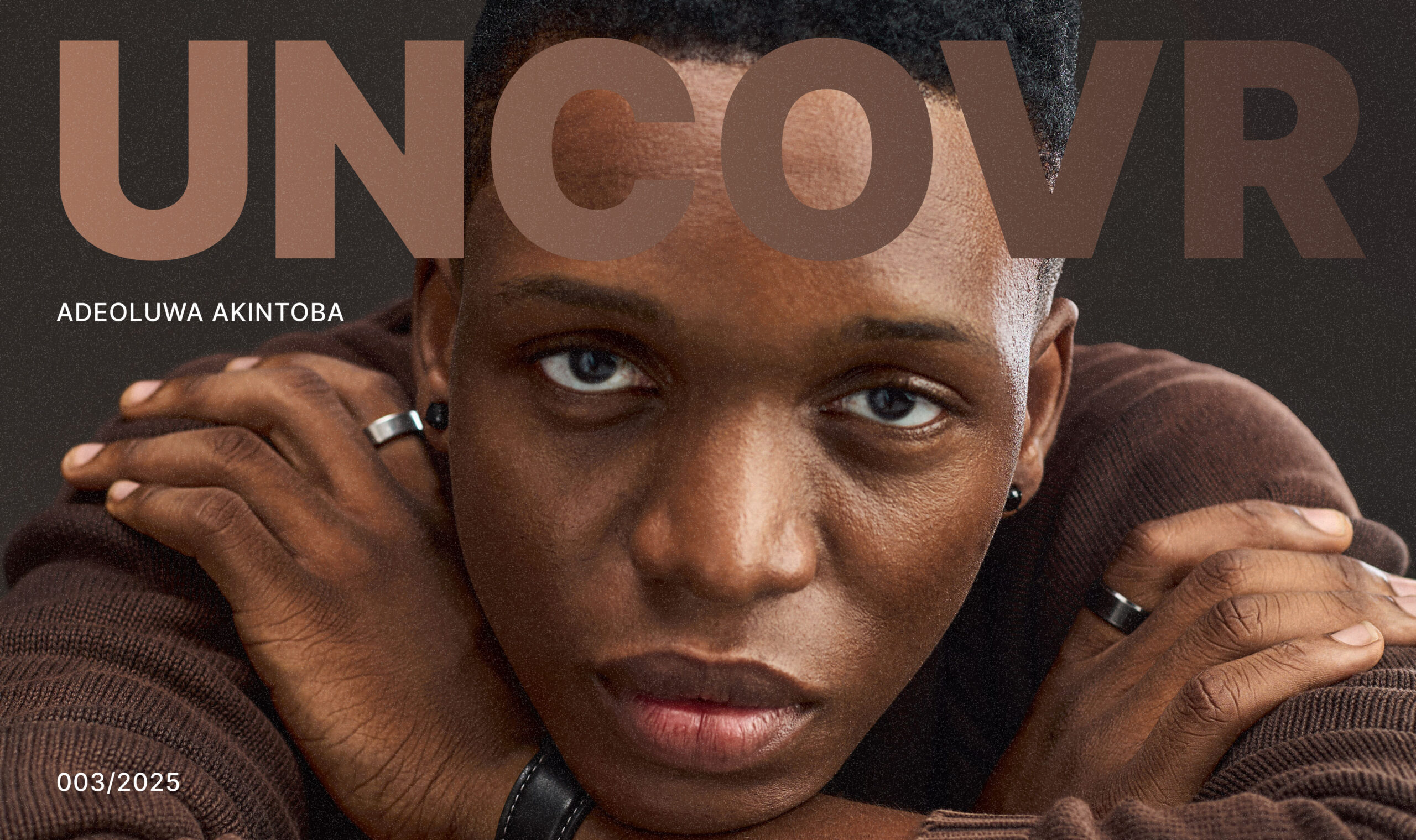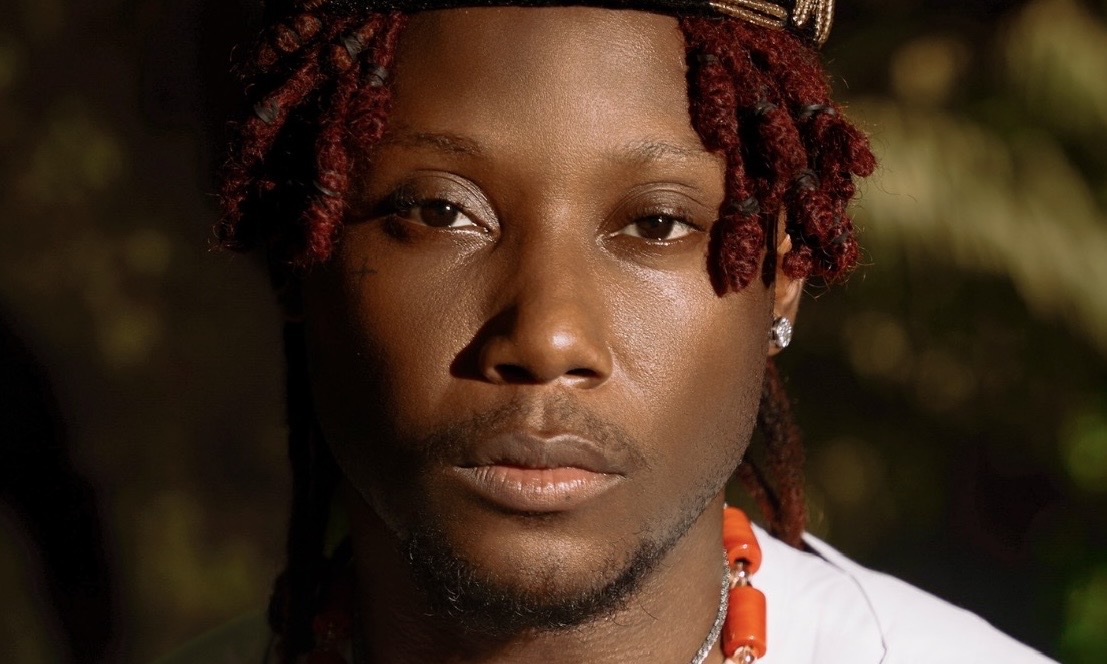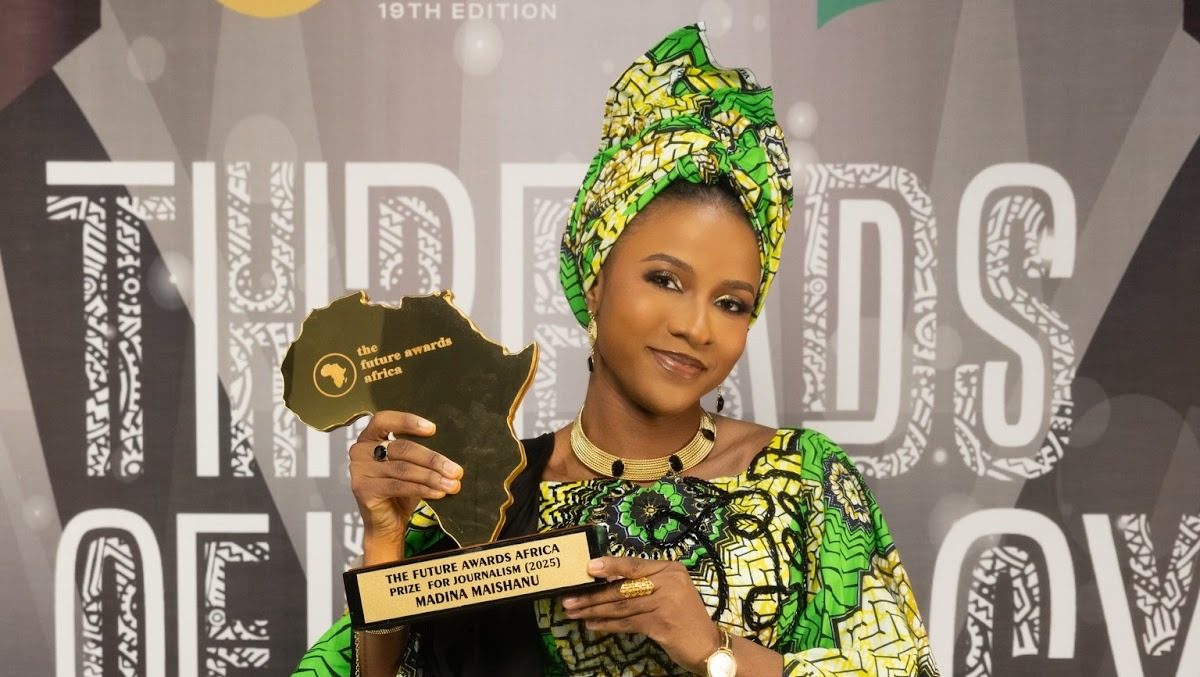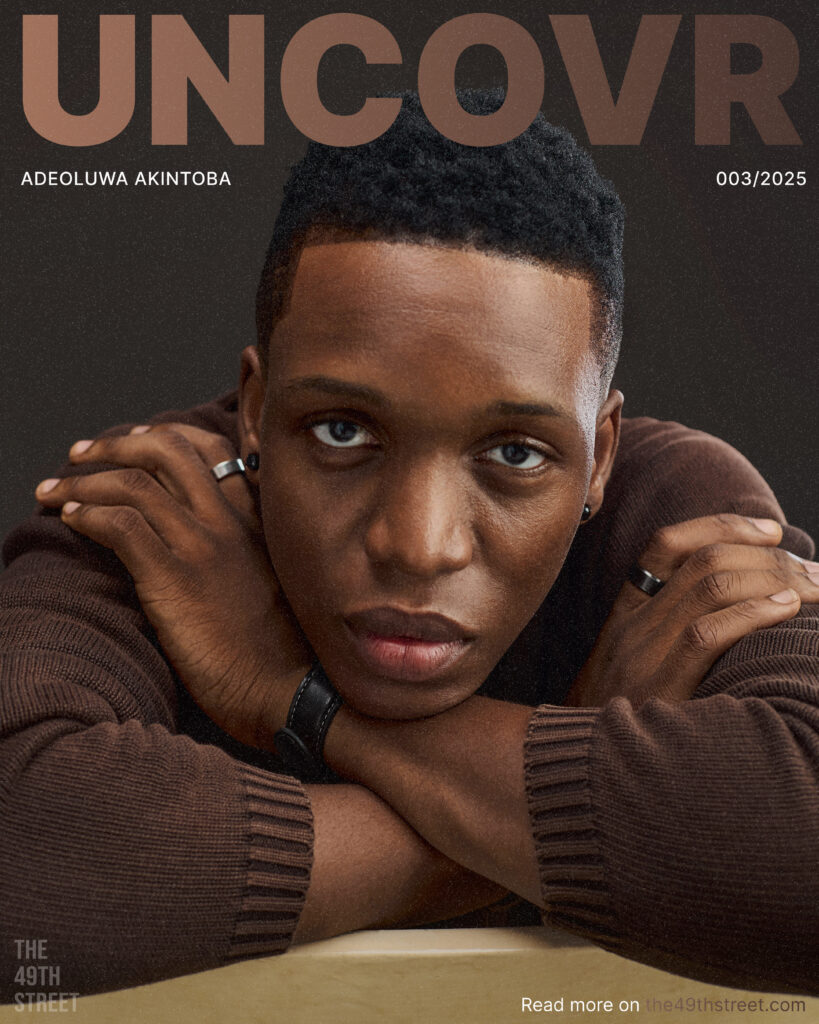
When Adeoluwa Akintoba first read the script for The Artifact, Nigeria’s first adventure film, something clicked. “I literally called Lotanna [the director] and said, ‘I want to be on this project,’” he recalls. “I knew from the first read how culturally important it was going to be.”
It was a gamble, but one that paid off. Not only did Akintoba land the lead role—his first time as number one on a call sheet—but the film became a career-defining moment. As JJ, a young man grieving his father while chasing mystical stones across Nigeria, Akintoba wasn’t just on an epic journey on screen; he was on one in real life, too.
“I grew so much,” he says. “Before The Artifact, Lotanna would call me reticent. I was quiet, withdrawn. But JJ pulled me out of my shell. Now, when I walk into a room, you feel my presence.” The performance didn’t just expand his skill; it gave him a new kind of confidence, one he’s brought into every project since.
Akintoba’s path to acting wasn’t linear, but the signs were always there. “As a kid, I was always drawn to the screen,” he says. “I didn’t know how or when it would happen, but I knew I wanted to be in that world somehow.” After graduating, he took his first step into media as an on-air personality at Beat FM Ibadan. “It felt like a step in the right direction,” he recalls. But in 2020, the COVID-19 pandemic hit, and like many others, he was laid off.
Rather than stay idle, Akintoba turned to family and film. He began learning cinematography from his uncle, Oladipo ‘O Fresh’, a decision that would change everything. It was through his uncle that he met director Niyi Akinmolayan, who offered him a chance to audition for Prophetess. He landed the role. “Honestly, that moment felt like destiny unfolding,” he says.
Even now, if he weren’t acting, Akintoba imagines he’d still be in front of the camera. “Probably a TV personality,” he laughs, “still telling stories.”
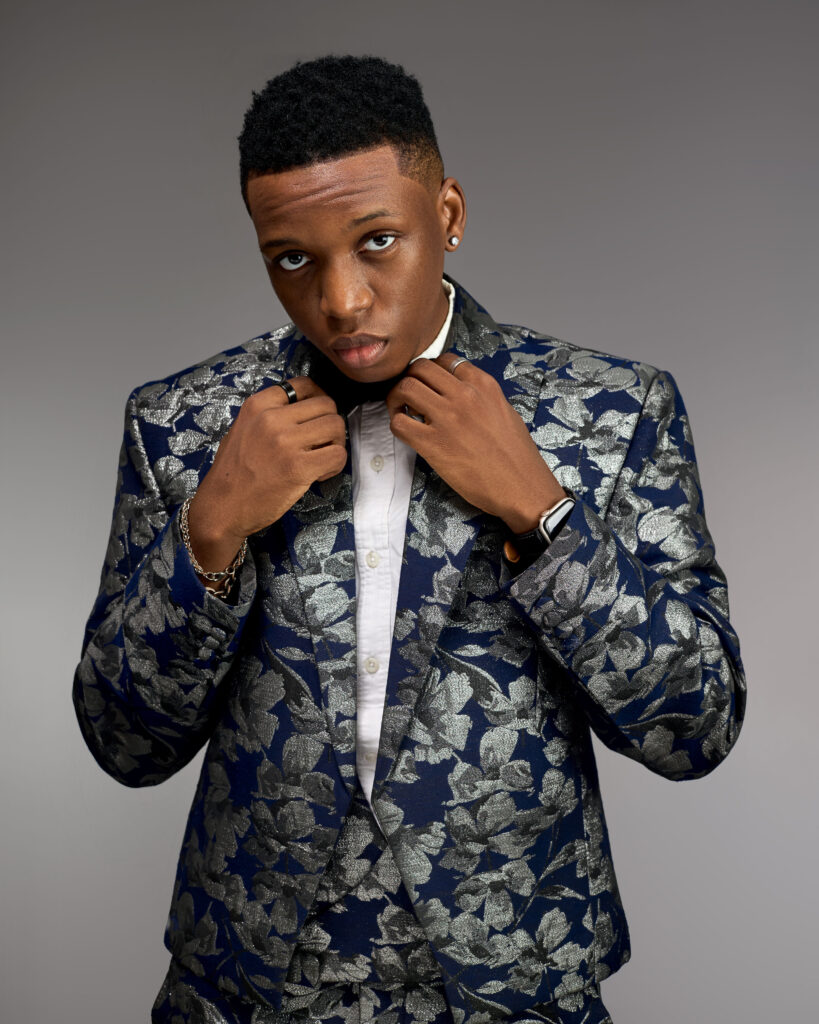
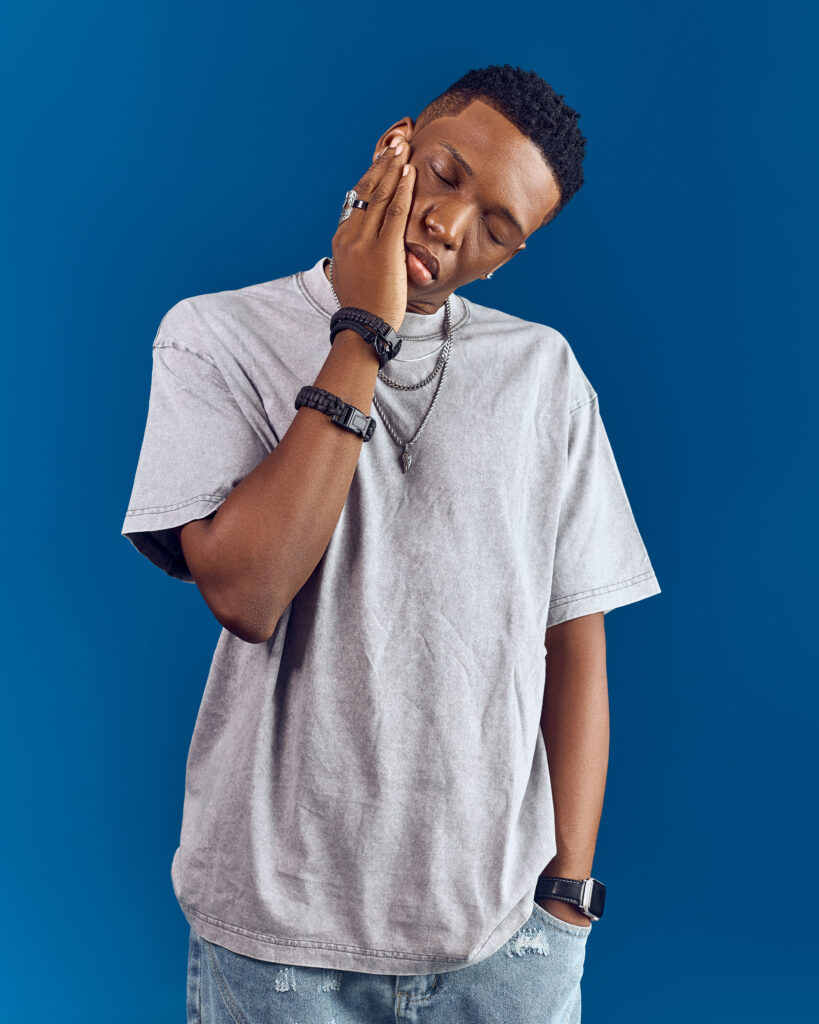
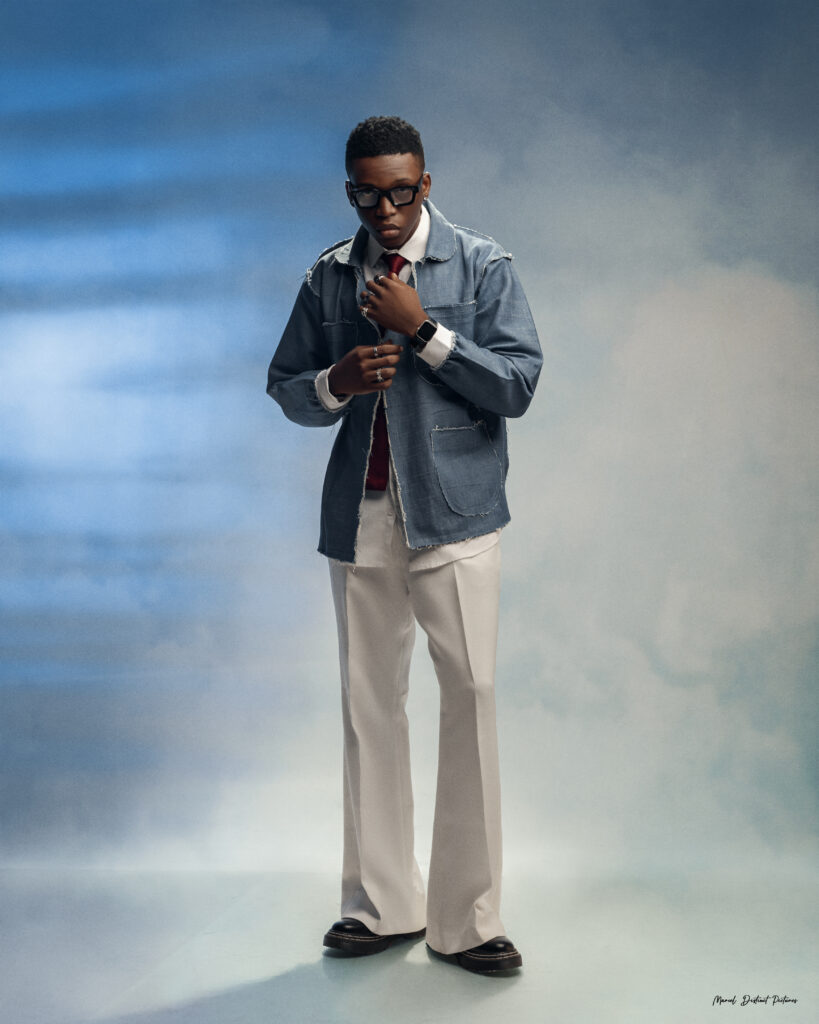
In just a few years, Akintoba has become a standout face in Nollywood’s new generation, building a résumé that is packed with a range from Prophetess to Slum King, Makemation to The Artifact. Many of his roles fall into the “young adult” category, something he has had to reconcile with. “I used to think, why do they always want me to play the young guy?” he says. “But I realised that’s what I look like. Instead of fighting it, I decided to show range within it.”
His characters might all be in their late teens or early twenties, but they are never the same. “You can’t put me in a box,” he insists. “From the tech-savvy, emotionally intelligent teen in Makemation to the grieving, desperate JJ in The Artifact, I treat every role like a chance to level up.”
Nevertheless, he is intentional about what roles he takes. “If I’ve turned anything down, it’s not because I didn’t like the story; it’s usually scheduling. I once had to say no to a twin role I was really excited about because the timing clashed with another shoot.”
It is this mix of artistic curiosity and discipline that drives him, not just as an actor, but as a storyteller. Akintoba doesn’t limit his creative energy to film. He’s also the co-founder of ATK Records, a music label and creative collective he started with a childhood friend. “Our parents got married on the same day,” he says with a smile, “So it kind of felt destined.”
While his co-founder focuses more on the business side these days, Akintoba runs point on the music, acting as the head of A&R, helping shape the sound and direction of artists under the label. “I’m passionate about music that has a voice,” he says. “Music that tells stories, like Jay-Z, Jon Bellion, Johnny Drille. That’s what I want ATK to stand for, music that connects, that reflects real life, not just hype or fake lifestyles.”
Akintoba’s venture into music doesn’t feel like a detour; it’s part of a larger artistic vision. “Whether it’s on screen or in sound, I care about narrative,” he explains. “I care about impact.” And impact is something he wants to scale. Akintoba is outspoken about the need for more youth-centered storytelling in Nollywood. “We’re not telling enough young people’s stories,” he says. “Our parents grew up with heroes. Where are the heroes for Gen Z?”
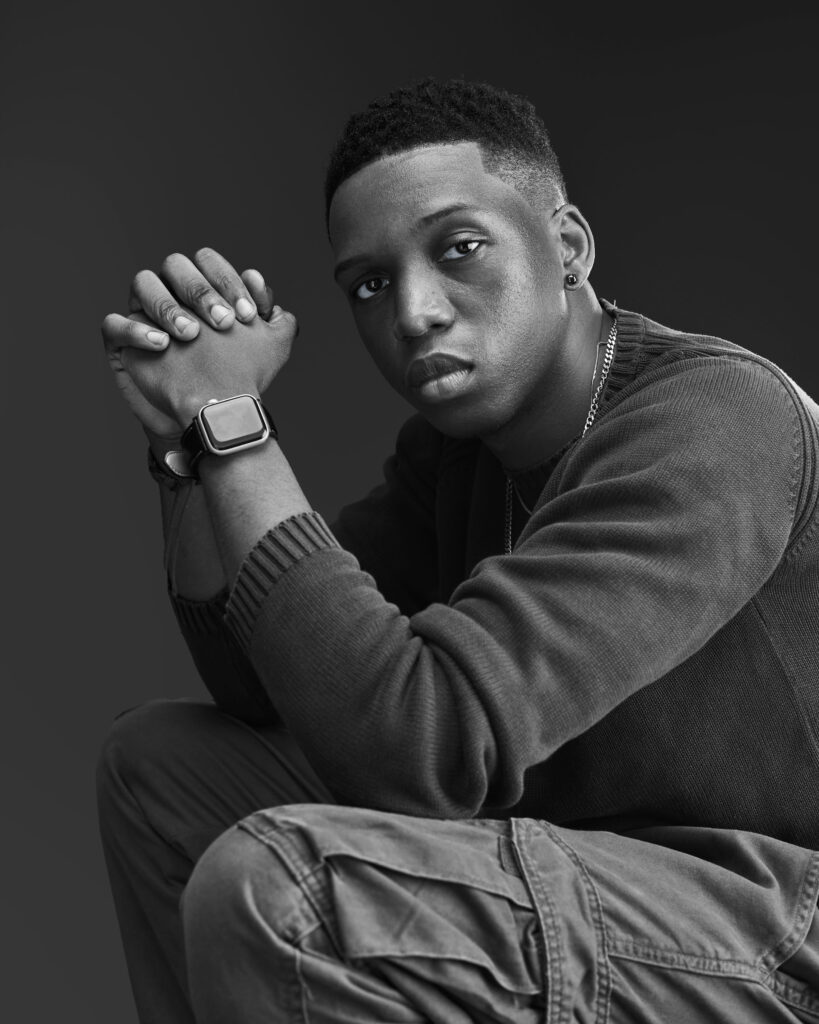
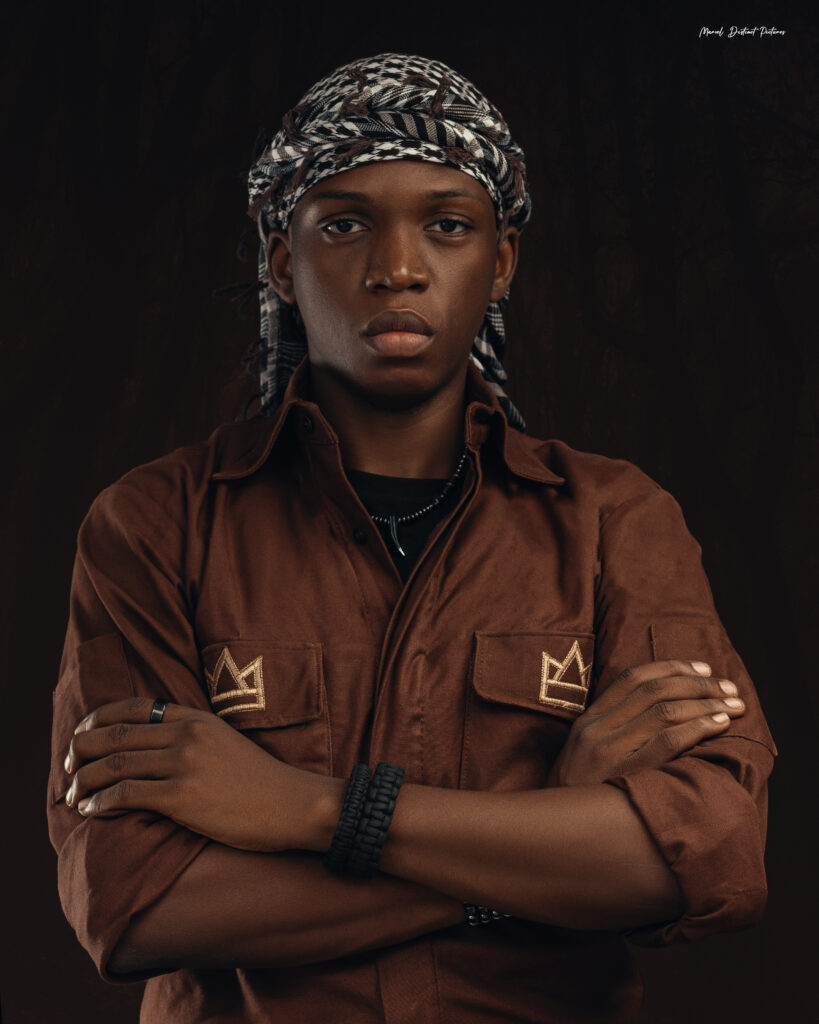
He points to the enthusiastic response to Makemation, especially from students who wrote essays about wanting to be like the characters. “That’s what storytelling can do. It gives people a vision for their lives.” He wants to keep creating roles that make young people feel seen. “What’s stopping us from making a Nigerian High School Musical? Or a film about uni students navigating life and love?”
It is also clear to him where the industry needs to grow. “Nollywood has to stop sidelining younger creatives,” he says. “Just because the veterans are there doesn’t mean there’s no space for us.” He cites Red Circle, a film made almost entirely by creatives under 35, as the kind of future-facing energy Nollywood needs. “We need to shake things up, give new voices a real chance.”
He urges the industry to hold tight to its greatest strength: the power of storytelling. “People still remember old films and how they made them feel. That emotional memory is gold. We have to protect that, even as we evolve.”
Looking ahead, Akintoba has big dreams. He would love to work with Ryan Coogler, Michael B. Jordan, or Nollywood directors like Kayode Kasum and Timini Egbuson; “He’s someone I really admire because he’s always in cinemas. That’s what I want: to become a cinema face.”
He has even got his eyes set on a role in the sequel to the Hollywood adaptation of Children of Blood and Bone. “They just wrapped the first part. I said it here, hopefully someone watches this back in two years and says, ‘He made it.’”
Until then, Adeoluwa Akintoba is busy building. Whether it is a role, a label, or a legacy, he’s clear on the mission: make it count. And for a boy from Ibadan who came to Lagos to “dominate the scene,” he is well on his way.

